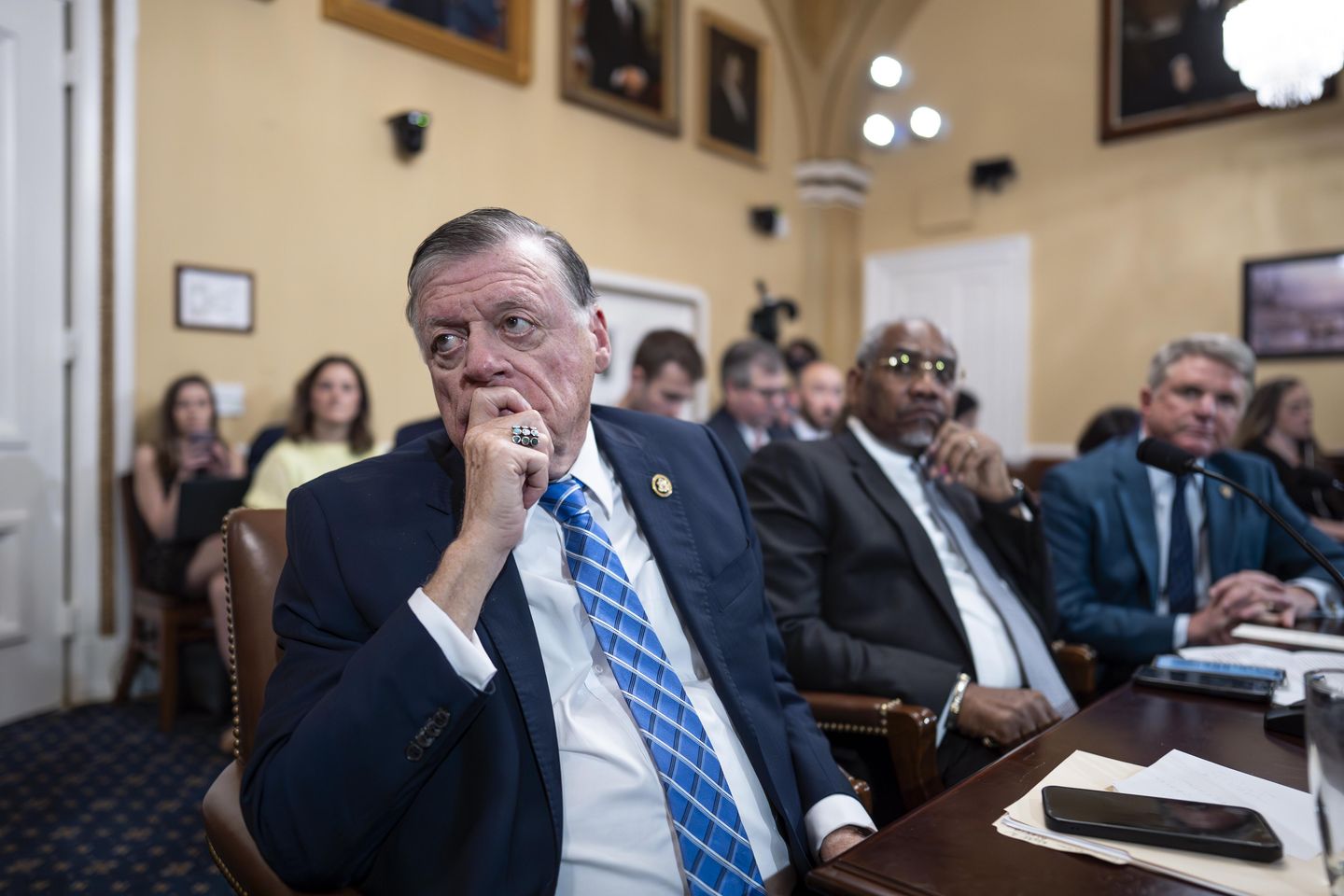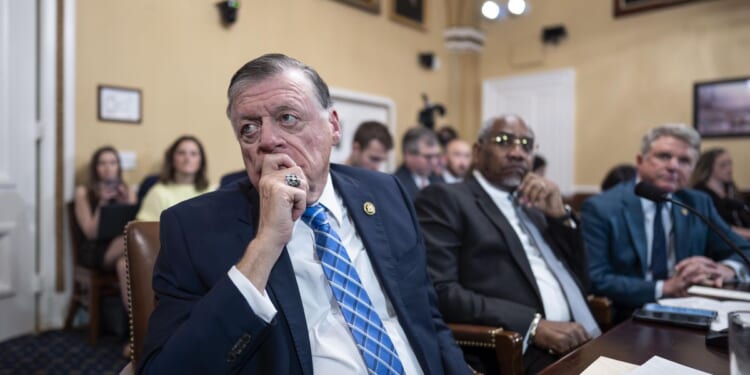
Congressional Republicans, stung by embarrassing projects that slipped into spending bills this year, announced rules Thursday to limit the types of pork-barrel projects that can be funded.
Lawmakers cringed when they realized they had included money for multiple LGBTQ centers, including one that hosted “kink” parties.
Democrats supported that project and included it in a bill written primarily by Republicans, who control the House.
The LGBTQ centers operate as nonprofits. Under the old rules, they were allowed to receive “earmark” money from Congress through Economic Development Initiative grants.
Newly minted House Appropriations Committee Chairman Tom Cole, Oklahoma Republican, said that will change as Congress works on next year’s bills. Nonprofits will no longer be able to get earmarks from the economic development account, though states and localities can collect money.
“Similar to previous reforms made in this Congress, this change aims to ensure projects are consistent with the community development goals of the federal program,” Mr. Cole wrote in a letter explaining the rules to colleagues.
Democrats accused Republicans of injecting partisan politics into the usually bipartisan tradition of taking pieces of the taxpayers’ pie.
Rep. Rosa DeLauro of Connecticut, the top Democrat on the committee, said the rule captures more than LGBTQ centers. It also blocks money for religious organizations and privately run veterans groups and senior centers.
She said nearly half of the economic development account in this year’s spending bills would be ineligible under the new rule.
“The result of this change does not just hurt House Democrats. They are hurting members of their own party by putting all House members at a severe disadvantage,” Ms. DeLauro said in a statement.
Congress is testing earmarks after a decadelong ban from 2011 to 2021. Republicans imposed the ban after bungles both big and small.
Alaska received hundreds of millions of federal taxpayer dollars to build a “Bridge to Nowhere” for an island with only several dozen residents and a ferry service.
Congress was so awash in pork-barrel spending that it sent money to the wrong projects entirely.
Several members of Congress ended up in prison for selling access to earmarks.
Democrats ended the earmark ban in 2021 and brought back pork-barrel spending with a new name — Community Funding Projects — and a set of rules that Ms. DeLauro said would prevent abuses.
She said Thursday that she had created a system of “transparency and accountability” that allowed lawmakers to directly respond to the needs of their communities.
Republicans said that shouldn’t mean $1 million in taxpayer money going to organizations such as the William Way LGBT Community Center in Philadelphia, which was accused of allocating space to groups that hosted kink parties.
The center insisted that the parties were much tamer than lawmakers envisioned, but the whole issue proved toxic and the Democratic sponsors asked that the money be withdrawn from the bill.
Republicans argue that earmarks should be easy and any project causing political trouble on one side of the aisle doesn’t belong.
Republican lawmakers said the stench went beyond LGBTQ spending.
Sen. Mike Lee, Utah Republican, said Congress gave $850,000 to New Immigrant Community Empowerment, an organization that he said perpetuated the border chaos by working for the legalization of illegal immigrants.
“Even if you agree with that entity, which many Americans don’t, why exactly is it that we are going to take money away from U.S. taxpayers and use that to fund this organization that actively assists in helping illegal aliens get American jobs?” Mr. Lee said on the Senate floor last month.
His attempt to cancel the spending failed.
Though Democrats lead the Senate, both chambers must agree on earmark projects.
Mr. Cole’s rules apply to the spending bills for fiscal year 2025. That doesn’t begin until Oct. 1, but lawmakers will spend the intervening months writing the legislation.
House lawmakers have until May 3 to submit their requests to the Appropriations Committee. They have a two-week grace period for posting their requests publicly on their websites.
Requests are supposed to include a declaration that neither the requesters nor their spouses have a financial interest in the project and a description of how the project advances federal spending priorities.












